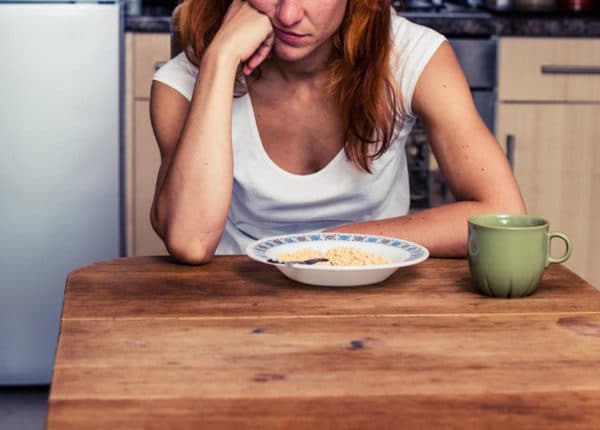The first step to treat any Mental Health disorder is an accurate diagnosis. When you acknowledge the problem, you will get a step closer to the solution.
There are both professional and lifestyle changes that help to cope up with eating disorders. It is not easy, but honest efforts will lead to your goal of recovery. You will need to learn and accept the change for living a happy and healthy life.
What is an eating disorder?
An eating disorder is obsessing over:-
- What you eat
- How much you eat
- When you eat
- Everything about eating

It is a myth that anorexia, bulimia, and binge eating are not about food. Eating disorders are developed when people use eating and food as a means to deal with problems in life. Eating disorders are a psychological issue. Food and eating become a means to deal with the painful circumstances in life. It gives a feeling of control in life.
The first way to deal with this issue is through therapy or counseling by a mental health expert. A professional will help you to organize your emotions that are the reason for obsessing about food. After that, you can resort to other lifestyle changes for a better life.
How to cope up with food?
Eating and food are primary aspects of human life. When it comes to coping up with food, it requires building a new and healthy relationship with it. You can consult a nutritionist to adapt to newer and healthier eating habits and plan your custom menu with food meals.
Try to make a strict food routine and follow it with discipline. Do not completely stop eating anything like desserts. You can have it in minor quantities. Concentrate on healthy eating and not dieting.

Try to look for a support system:-
A support system will help you to deal in a better way for a long time. You find a support system in a friend, family member, or any close person. Be particular about choosing your support system.
Let them know that you are suffering from an eating disorder and be patient. Facing and coping up with an eating disorder alone can become very difficult at some point.
This will also help others to understand your daily struggles. If not, then talk and get support on your professional therapy or become a part of Mental health support groups.
Try to distract yourself:-
Another good way to deal with eating disorders is to distract from the urge to eat and obsession with food. You can take up exercise, yoga, or meditation to get rid of stress or tension.

You can take up other activities like drawing, dance, music, social work, or writing. Try to replace your bad habits with new ones. The most important requirement is a sense of self-esteem and positivity.
Find joy and happiness in life:-
For treating eating disorders, you need to unlearn the behaviors that you have learned. Just as it develops, it can become better too. You will have to give up eating junk food and find new and constructive ways to deal with your problems.

Some ways can be:-
- Understand your feelings
- Understand yourself
- Accept yourself and love yourself
- Develop self-esteem and confidence
Some effective treatments for an eating disorder:-
There are a lot of treatments available for healing disorders. It is important to find the ideal treatment out of all in your case an effective treatment will not only treat your symptoms or eating obsession over food. It will also address the cause behind the eating disorder. This can be emotional problems, stress, anxiety, fear, sadness, etc.
- Approach a medical professional- Eating disorders can have some serious emotional, medical, and health effects. It is important to find the right mental health professional who makes you feel comfortable and confident.
- Look after health issues- Eating disorders can have serious health issues. It can make you extremely underweight. Your health can be serious when you eat occasionally or very quickly in varying quantities. Get an evaluation of your health condition. Ensure your health care.
- Make a recovery plan- Once your health problems come under control, it’s important to plan a recovery strategy.
- Therapy- Individual or group therapy will help in addressing the emotional trigger for eating disorders. You will learn different ways to cope up with stress, anxiety, and other emotions.
- Family Therapy- Family Therapy will make your family understand your problem In a better way. It will also let them know how the eating disorder is affecting your family relationships.
- Medical observation- A medical observation will travel your recovery by a professional through timely screenings.
- Treatment- In rare cases, residential treatment is provided for 24/7 care at home.

- Try self-help methods- The biggest role in your recovery process will be played by yourself. It will make you contribute in a better way towards your recovery. You will have to give honest efforts on developing a positive outlook in life.
Also Read : How The World’s Expectations Of You Can ‘Eat’ You Up: Understanding The Different Types Of Eating Disorders












